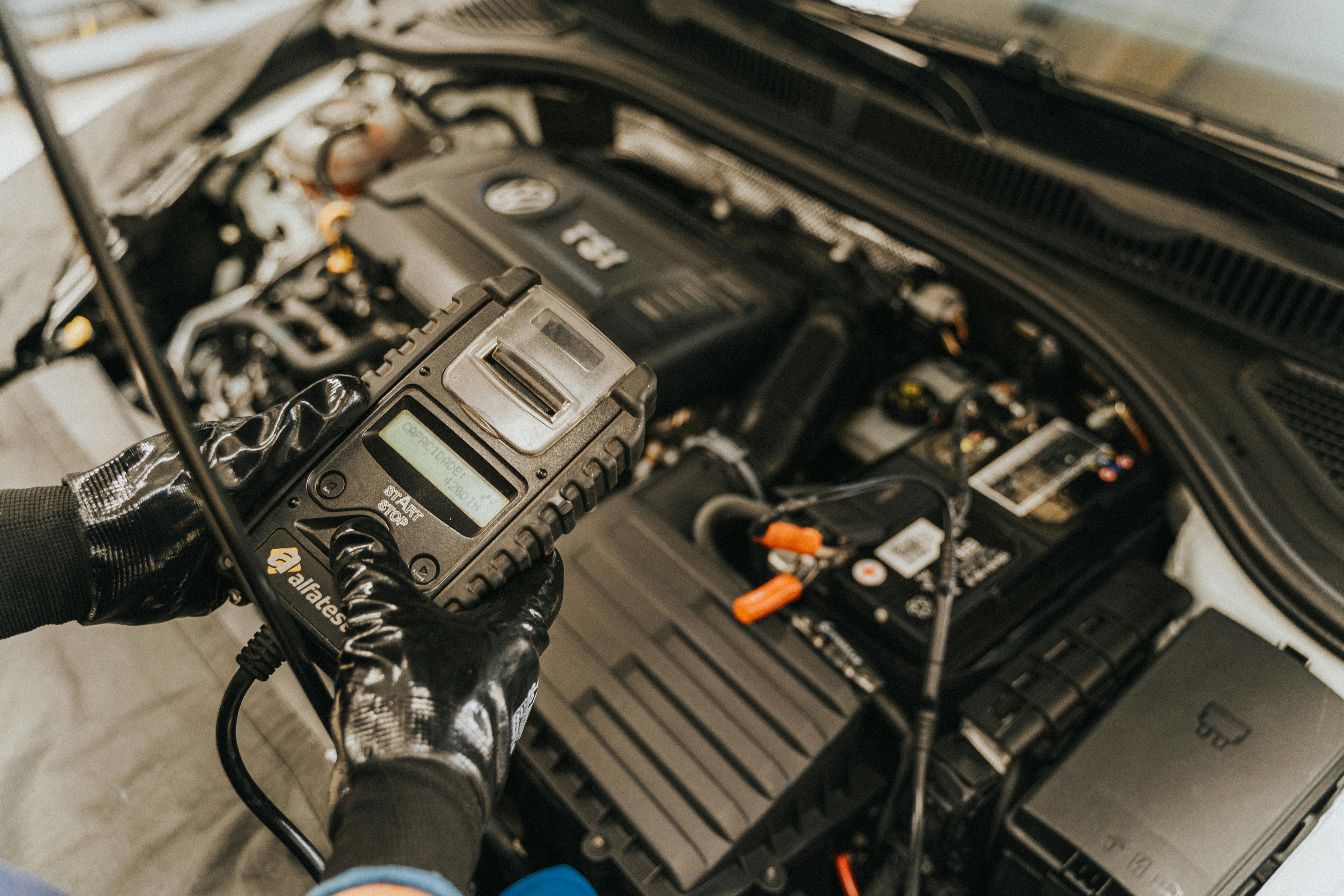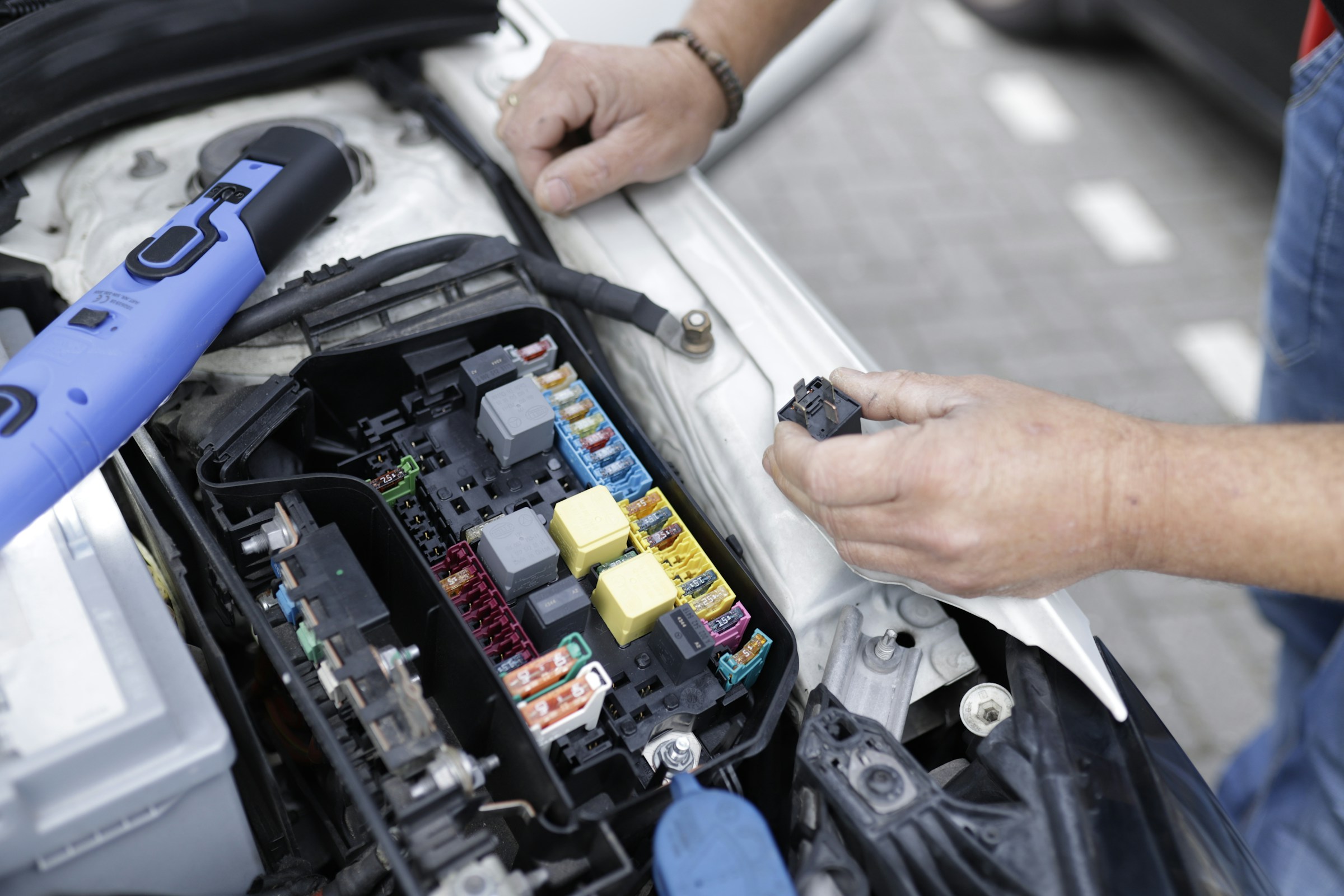
Classic Cars and MOT Exemption: What You Need to Know
Owning a classic car brings joy and satisfaction. From the unique styling to the connection with automotive history, these vehicles offer an experience that modern cars simply cannot match. One important aspect of classic car ownership is understanding the MOT exemption rules that apply to older vehicles in the UK.
This guide explains what you need to know about MOT exemption for classic cars, including which vehicles qualify, what constitutes 'substantial changes' and potential future updates to the regulations. You will also learn why Rimmer Bros is your ideal partner for keeping your classic car in top condition, whether it requires an MOT or not.
What is MOT Exemption for Classic Cars?
MOT exemption allows certain classic vehicles to be used on public roads without needing an annual MOT test. This recognises that many classic cars are well maintained by their owners and often used less frequently than modern vehicles.
Under current UK rules, most vehicles built or first registered more than 40 years ago are exempt from the annual MOT test, provided they have not undergone 'substantial changes' in the past 30 years. This is a rolling exemption, meaning that each year, another batch of cars becomes eligible.
For example, from April 2025, vehicles manufactured before January 1985 or first registered before 8 January 1985 will qualify for both MOT and vehicle tax exemption.
Qualifying for MOT Exemption: Key Requirements
To qualify for MOT exemption, your classic car must meet these criteria:
- First registered or built: more than 40 years ago
- No 'substantial changes': made to the vehicle in the past 30 years
- Not used commercially: if it's a large goods vehicle or bus
Remember that even if your vehicle qualifies for exemption, you must still keep it in a roadworthy condition. Driving an unsafe vehicle can result in fines of up to £2,500 and penalty points on your licence.
What Counts as 'Substantial Changes'?
The Department for Transport has provided guidance on what constitutes 'substantial changes' that would disqualify a vehicle from MOT exemption. These generally relate to major modifications that alter the technical characteristics of main components.
Changes that ARE considered substantial:
- Major modifications: to axles or running gear
- Changing the type: or method of steering or suspension
- Kit conversions: that significantly alter the vehicle's appearance
Changes that are NOT considered substantial:
- Replacement chassis: of the same pattern as the original
- Alternative cubic capacities: of the same basic engine
- Changes to preserve: a vehicle when original parts are no longer available
- Modifications that were typical: during the vehicle's production or within 10 years after
- Changes to improve: efficiency, safety or environmental performance
Classic Vehicles That Still Require an MOT
Some vehicles will not qualify for MOT exemption even if they are over 40 years old:
- Vehicles with a 'Q' registration: (age or identity is uncertain)
- Kit cars: assembled from components of different makes and models
- Reconstructed classics: built from parts of multiple vehicles
- Vehicles still in commercial production
- Large goods vehicles: (over 3.5 tonnes) that carry loads or tow laden trailers
- Commercial buses: with eight or more seats

How to Apply for MOT Exemption
Unlike vehicle tax exemption, you do not need to apply specifically for MOT exemption. Once your vehicle reaches 40 years of age, it automatically becomes exempt if it meets the criteria above.
However, when taxing your vehicle, you will need to complete a V112 declaration form to confirm that your car has not been substantially changed in the past 30 years. This declaration is your responsibility as the vehicle owner.
Potential Changes to MOT Exemption Rules in 2025
Recent consultations by the UK Government suggest that changes to the current MOT exemption rules might be coming in 2025. The Department for Transport is reviewing whether the current exemptions should continue in their present form.
From a survey of over 1,000 respondents, many supported introducing some form of safety testing for older cars. Options being considered include:
- Tailored inspections: specifically designed for classic vehicles
- Safety checks: after major restoration or repair work
- Full MOT testing: but without emissions testing requirements
If you own a classic car, it is worth staying informed about these potential changes that could affect how you maintain and use your vehicle in the future.
Voluntary MOT Testing: A Wise Decision?
Even if your classic car is exempt from MOT testing, many owners choose to have voluntary tests done. This provides peace of mind that your vehicle is safe and roadworthy.
A voluntary MOT can:
- Identify hidden issues: you might not notice
- Provide reassurance: when driving longer distances
- Help maintain: your vehicle's value
- Satisfy insurance: requirements
The test will cost the same as a standard MOT and follow the same inspection standards, but it will be adjusted appropriately for your vehicle's age.
Why Rimmer Bros for Your Classic Car Needs
When maintaining your classic car, whether MOT exempt or not, Rimmer Bros offers unmatched expertise and parts availability. Established in 1982, we have built a reputation for excellence in serving classic car owners across the UK and worldwide.
Our outstanding advantages include:
- Specialists in: Triumph, MG, Rover, Mini, Morris Minor, Austin Healey, MX5 as well as parts for Land Rover, Range Rover and Jaguar
- Over 2 million parts: in stock covering 52,000 part numbers
- Parts advisors: with a combined 1,032 years of experience
- 105,000 sq ft warehouse: in Lincoln, UK
- Genuine, OEM and high-quality: Aftermarket parts available
- British Motor Heritage approval: for Triumph, MG, Austin Healey, Morris Minor, Mini and Rover SD1 parts
- Fast mail order service: to 195 worldwide destinations
Our team understands that classic cars require specialist knowledge and quality parts. We know your car and can help you maintain its authentic character while ensuring it remains roadworthy.
Keeping Your Classic Car Roadworthy
Whether your classic car is exempt from MOT testing or not, keeping it in good mechanical condition is essential. Here are some key areas to check regularly:
- Brakes: Ensure they work efficiently and check for fluid leaks
- Steering: Look for excessive play or stiffness
- Tyres: Check tread depth and condition
- Lights: Make sure all lights function correctly
- Suspension: Inspect for wear or damage
- Body: Check for structural rust that might affect safety
- Exhaust: Look for leaks that could allow fumes into the cabin
Rimmer Bros stocks parts for all these systems, allowing you to maintain your classic car to the highest standards. Our parts catalogues and website make finding exactly what you need straightforward, and our knowledgeable staff can provide advice on maintenance issues.
For any questions about parts for your classic car, contact our team at Rimmer Bros. With over four decades of experience and passion for British classics, we are ready to help you maintain, restore and enjoy your vehicle.